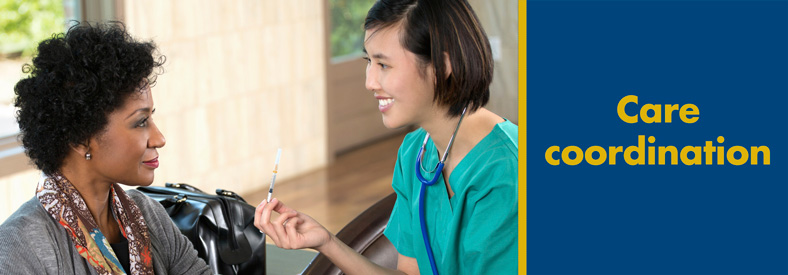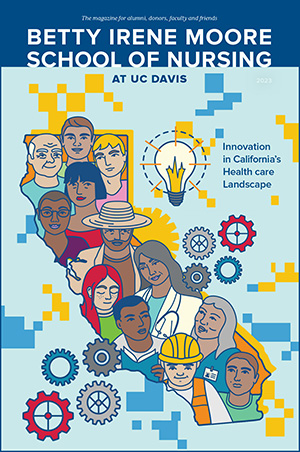Care coordination

People with chronic health conditions, such as cancer, diabetes or obesity, face a complex care system with multiple team members who must also communicate with one another over time and across locations. One of four adults manages two or more chronic health conditions. Chronic diseases account for $3 of every $4 spent on health care.
Care coordination promotes responses to symptoms such as pain or breathlessness, can provide education and coaching to maximize quality of life, and can link multiple primary care providers and specialists. The Collaborative Care Coordination Research Group, led by Betty Irene Moore School of Nursing faculty and graduate students, forges innovative collaborations with other disciplines, such as anesthesiology and social work, to create new models of nurse-directed and technology-enabled care coordination.
A few current studies underway include:
- Cancer Care Coordination: pilot randomized controlled trial —funded by a McKesson Foundation grant — testing effects of nurse care coordination and technology-enhanced nurse care coordination on outcomes of people undergoing chemotherapy.
- Patient-Centered Outcomes Research Initiative (PCORI) grant: coupling nurse coaching with enabling technologies to change the conversation about health and provide the tools and strategies for individuals to manage diabetes more effectively and in collaboration with the health care team.
- Health Network Technology to Enhance Nurse-directed Early Palliative Care for Cancer Patients: gathers information from people with cancer and their caregivers to identify features of a novel personal health network technology and potential acceptance.
- Coalition to Transform Advanced Care: partnership with the Alameda County Care Alliance to support family caregivers and those with advanced illnesses. partnership with the Alameda County Care Alliance to support family caregivers and those with advanced illnesses.





